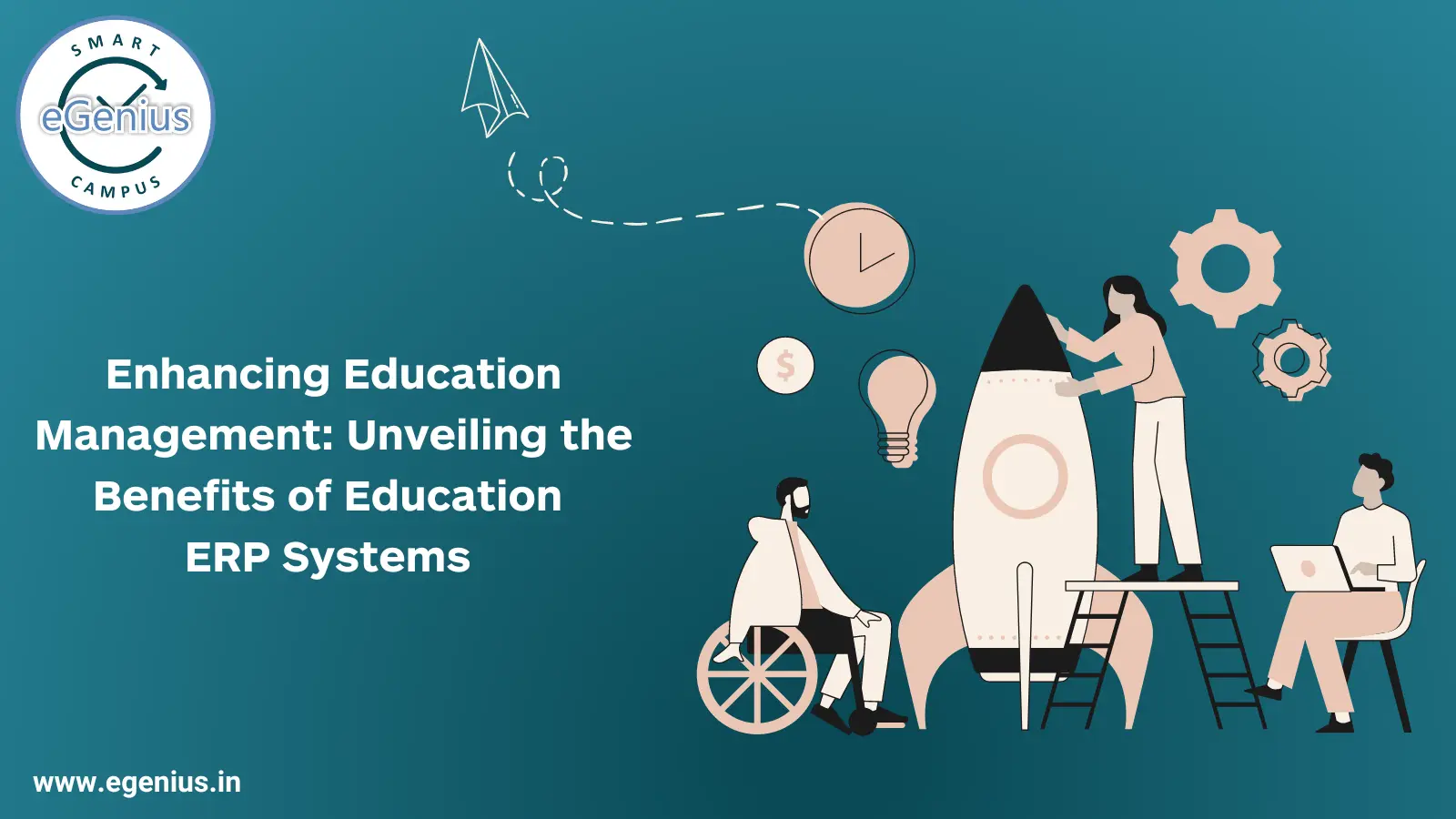Table of Content
- Introduction.
- ERP Systems’ Advantages for Institutes.
- Teachers’ Benefits
- Advantages for students
- Conclusion
Introduction
Educational institutions in the digital age are always looking for innovative methods to boost productivity, encourage teamwork, and simplify operations. Thanks to Education ERP, the way academic institutions do business has completely transformed. This blog post will discuss the many benefits that ERP systems offer to education—both for instructors and students.
ERP Systems’ Advantages for Institutes
1) Easier Administrative Processes: Education ERP systems serve as centralized hubs for integrating many administrative functions, such as payroll, student records, admissions, and fee management. By automating these processes, organizations may check the quality of the data, avoid mistakes, and significantly reduce paperwork. This streamlined approach saves time and resources by improving productivity and allowing administrative staff to focus on more strategic tasks.
2) Better Data Management: Education ERP systems provide a solitary, consolidated platform for classes, resources, teachers, and massive amounts of data. Being well-versed in data management enables institutions to quickly obtain up-to-date information, generate insightful reports, and make data-driven decisions that improve operations and academic outcomes.
3) Enhanced Cooperation and Communication: Robust cooperation and communication are the cornerstones of a robust educational ecosystem. ERP systems make efficient communication among educators, guardians, pupils, administrators, and other relevant parties possible. ERP platforms cultivate community through web portals, chat tools, and alert systems, enhancing communication, teamwork, and organizational cohesion.
Teachers’ Benefits:
1) Simplified Course Management: The user-friendly interfaces of education ERP systems make it simple for instructors to keep track of course materials, assignments, grades, and schedules. Instructors utilize integrated tools for personalized teaching, tracking progress, and crafting engaging learning experiences, catering to individual student needs.
2) Efficient Resource Allocation: ERP systems assist educators in making the most efficient use of their resources by providing information on lecture attendance, equipment availability, and faculty workload. By doing so, institutions may enhance academic performance, close resource disparities, and enhance the overall learning environment for students.
3) Professional Development Opportunities: The professional development modules found in many education ERP systems make workshops, training materials, and professional progress tracking possible. Education professionals enrich pedagogy, stay updated, and offer enhanced educational experiences by investing in skill development and continuous learning.
Advantages for students
1) Customized Learning Environments: Educational Resource Management Systems (ERP) enable instructors to customize their lectures to meet each student’s unique learning preferences, styles, and speeds. Students benefit academically through personalized learning pathways and adaptive algorithms, fostering deeper engagement and targeted support.
2) Better Resource Access: Thanks to ERP systems, all kinds of educational resources, including digital libraries, online courses, and academic support services, are readily available to students. Institutes empower students for lifelong learning by removing barriers and promoting flexible studying, fostering ownership and exploration.
3) Improved Accountability and Engagement: ERP systems enable students to be more active in their educational journeys by providing access to their academic records, progress tracking, and learning objectives. ERP systems foster student accountability, motivation, and academic success by promoting transparency, accountability, and introspection.
Conclusion
Solutions like eGenius Education ERPs (Enterprise Resource Planning) have numerous benefits that transform educational institutions’ operations and service delivery. Thanks to ERP systems, educators and learners alike can flourish in today’s dynamic educational landscape. These resources include accelerating office processes and enhancing teamwork, communication, and educational opportunities. Leveraging technology in institutions may make education more creative, effective, and unique.















